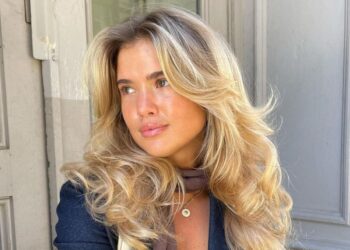TW: discussions of DV, VAWG and plot spoilers.
You’d have to be living under a rock not to notice the It Ends With Us drama. In an internet feud reminiscent of the Amber Heard v Johny Depp trial, TikTok is pitting Blake Lively and Justin Baldoni against each other. Either you are Team Lively, reportedly ‘fat shamed’ by co-star and director Baldoni, or you are Team Baldoni, the ostracised director, wrongly villainized by Lively’s PR team. He is campaigning alone against domestic abuse whilst Lively is using the film as a platform for her haircare brand. First, it was claimed there were two cuts of the film, one Blake’s and one Baldoni’s. Then there were allegations that Lively’s husband interfered with the script. Now there are dramatic Instagram unfollowings among the cast. It’s all getting pretty messy. In a witch hunt spirit typical of TikTok sleuths and body language experts, the internet is resurfacing all possible content on the two actors to gleam any new piece of the puzzle and solve the question, who is the villain?
We all love celebrity gossip. But, yet again, it’s gone way too far. Fundamentally, the media, and the actors, and us as an audience are all missing the point. Behind PR crisis strategies, heated press tours and floral aesthetics is an extremely sensitive subject matter handled in a deeply problematic way. It’s the glamorisation and capitalisation of domestic violence at its worst.
From the trailer, you’d be forgiven for thinking that It Ends With Us, the movie adaptation of Colleen Hoover’s bestselling novel, is a classic teen romcom. In the same tone as the Barbie movie promotion, Lively is declaring to “bring your friends” and “wear your florals”. Selling this film, a story about escaping generational cycles of domestic abuse, as a cosy, feel-good content with no trigger warning is dangerous and misleading.
Whilst the media storm is chasing celebrity gossip and girly aesthetics, only a fraction of the attention has been placed on the actual plot, which perpetuates pernicious stereotypes about masculinity, and simplifies the issue of domestic violence. As Baldoni highlights on his press tour, some elements of the film may provide hope, empower and inspire victims. The protagonist Lily Bloom eventually leaves her abusive relationship after the birth of her child, declaring that the cycle of violence starting with her father ‘ends with us’. However, along the way, there are some shocking and quite frankly ridiculous moments throughout the film, which set gender stereotypes back 50 years.
Let’s start with Ryle. Lily first meets her future husband Ryle, when he storms out onto a balcony and breaks a chair in rage. If this wasn’t a red flag enough, when Lily reveals her father was abusive, Ryle responds with, “There is no such thing as bad people. We’re people who sometimes do bad things”. Foreshadowing what’s to come, Ryle eventually starts physically abusing Lily and attempts to rape her. Before their marriage, he continually turns up at her door and begs for sex. But, worst of all, the portrayal of Ryle as a tall, dark, handsome neurosurgeon tortured by a troubled past and the sanitisation of his violence in the movie romanticises this abuser.
Then there is Atlas, Lily’s first love, who re-enters her life and encourages her to leave abusive Ryle. He is the innocent high school sweetheart to the rescue and challenges Ryle in his restaurant. The classic male saviour, using physical violence to protect his first love. I could go on, but this snapshot reveals how there are no real healthy role models for masculinity in this movie. Ryle’s acts of love towards Lily are always just creepy (but it gets played off as romantic because he is handsome and charming) and Atlas is the male saviour we didn’t need.
As a culture, we are awful at talking about the reality of domestic abuse and its portrayal in the media we consume, but we must. It Ends with Us has sold seven million copies, most of which are young people. Considering its success, greater care and attention must be placed on providing adequate content warnings for viewers. Let’s move the attention away from the baby pink cover, stop obsessing over floral aesthetics, look beyond the celebrity gossip and get to the real problem. This is a tale of domestic abuse, packaged as a romance.
0808 2000 247 (The UK National Domestic Abuse Helpline)
Call 1.800.799.SAFE (7233) (US National Domestic Abuse Helpline)












